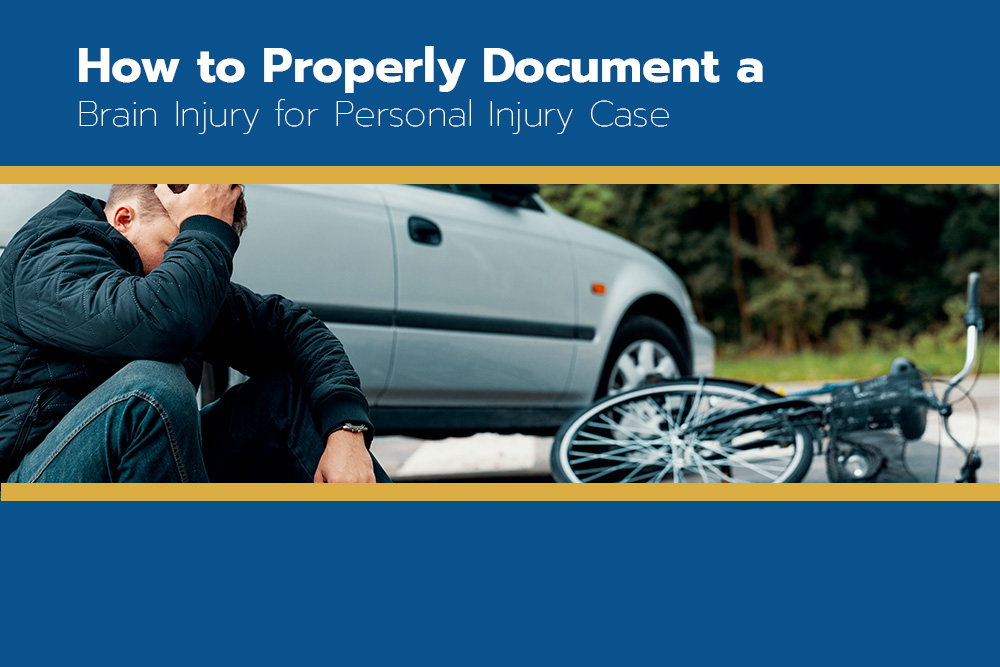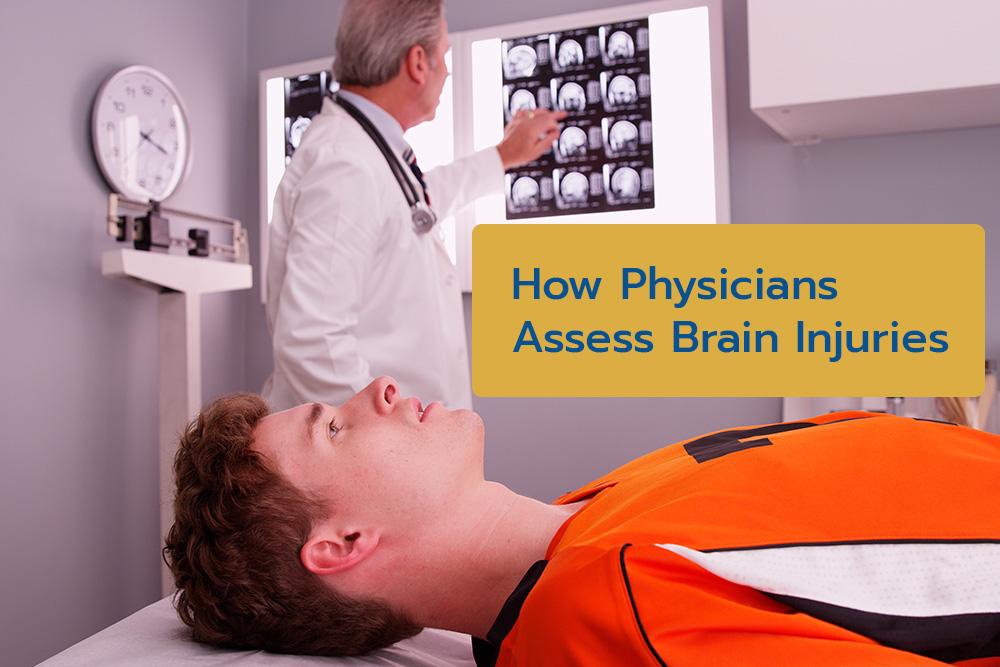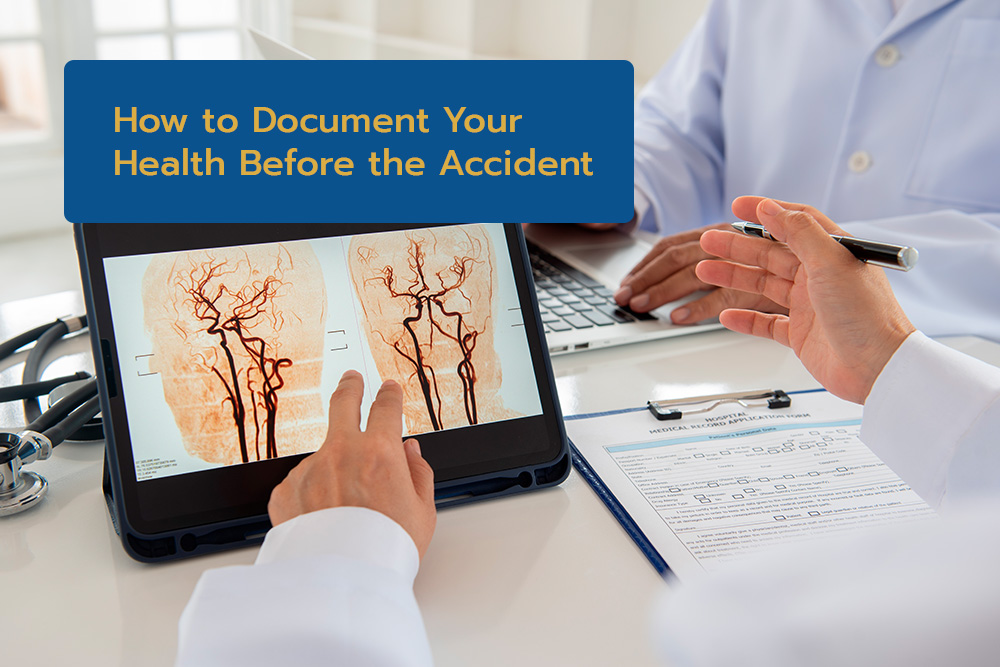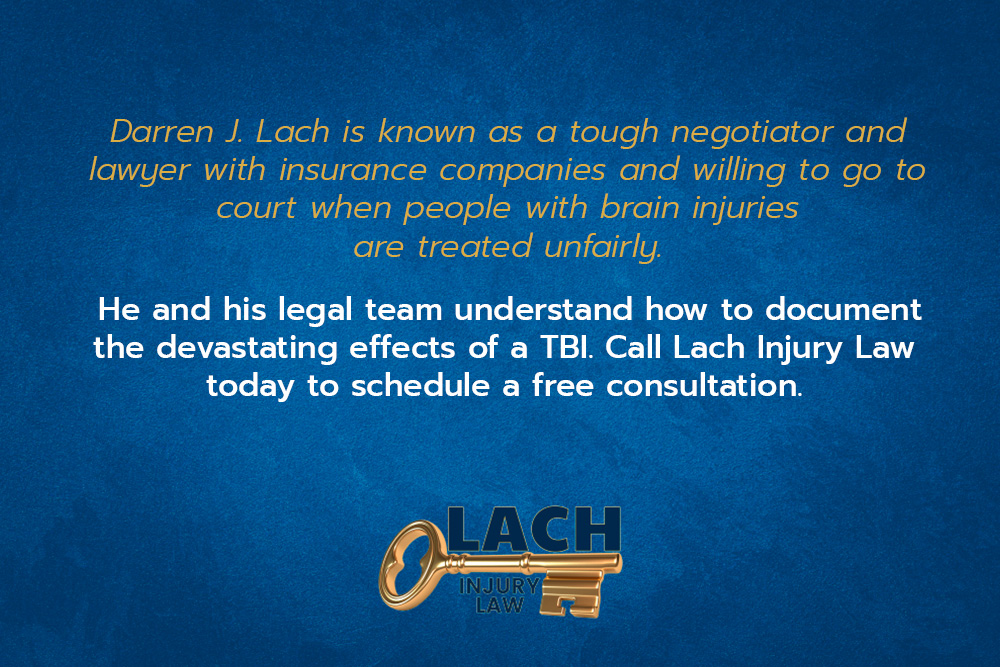
Collecting an accident settlement for a traumatic brain injury (TBI) depends on thorough evidence. Expert medical testimony will very likely be necessary because the disability you suffered could be invisible to most people. Nonetheless, TBIs can inflict debilitating damage, and victims often require large settlements. The prospect of paying out millions will prompt an insurer to resist your personal injury claim. This high-stakes reality makes the representation of a personal injury attorney is especially important for a TBI victim.
Symptoms Can Sneak Up on People

Any blow to the head, even if it appears to be minor, must be taken seriously, but head injuries are notorious for delayed symptoms. At first, victims might think that they are fine, and hours, days, or even weeks might pass before the true extent of the problem surfaces.
Seek immediate medical care if you experience any of these symptoms:
- Persistent headaches
- Dizziness
- Confusion
- Disruption of sleep, either too much or insomnia
- Irritable or angry mood
- Depression
- Trouble concentrating
- Memory loss
- Fluid leaking from ears
- Trouble speaking
- Loss of sense of smell
- Strange taste in the mouth
- Loss of coordination
- Nausea and vomiting
- Sensitivity to light
If a medical professional did not note a head injury at the time of your accident, make sure that you mention the accident when seeking medical care a second time. You or someone with you should ensure that the physician mentions the recent accident on your record.
Medical documentation forms the basis of your brain injury personal injury claim. Personal injury lawyers need proof that connects your accident to your TBI symptoms. They also need medical scans and opinions to illustrate how your brain function was compromised temporarily or permanently.
How Physicians Assess Brain Injuries

Loss of consciousness is one factor that physicians use to determine if a head injury is mild, moderate, or severe. A loss of consciousness of under 30 minutes falls into the mild category. However, mild TBI can still impact your quality of life and ability to work for months or even years.
This can have lasting effects on your income. You might have been hospitalized and required follow-up services from physicians and therapists. A personal injury lawyer can help you organize medical records and bills for an insurance claim or lawsuit.
A head injury that leaves a person unconscious for 30 minutes or more crosses into the classification of moderate or severe, with severity increasing in relation to the length of unconsciousness. If your accident caused a head injury with prolonged unconsciousness, then you should see a neurologist to conduct brain scans. In the worst cases, brain swelling starts within days of the accident, and emergency surgery to relieve dangerous pressure on the brain is needed.
A 15-point test called the Glasgow Coma Scale scores the severity of your brain injury. The test assesses neurological abilities, including speech and physical coordination, with low Glasgow scores indicating serious TBI.
In the weeks and months following a TBI, you may receive evaluations of your speech or cognitive abilities. These tests provide meaningful evidence about your loss of function and how quickly it returns, if at all. Personal injury lawyers cite these specialized tests when trying to prove physical harm and reduced life quality.
How to Document Your Health Before the Accident

On the surface, many TBI victims look normal. In reality, they are suffering from any combination of pain, mood disorders, inability to concentrate, speech problems, or compromised motor skills. For this reason, your injury attorney will want to document your medical condition and lifestyle before the accident. This establishes a baseline of function that can be compared to the problems that emerged since your accident.
Sources of evidence about your pre-accident self:
- Medical records dating back for as many years as possible
- Testimony from friends, co-workers, and colleagues who knew you before the accident
- Testimony from your family members
- Education and employment records
How to Document What the Accident Did to Your Brain
From the time of the accident forward, you will need to gather all medical records about your evaluations and treatments. This provides hard evidence about your physical and mental symptoms since the accident.
Additional records supporting your personal injury claim include:
- Police report
- Incident report
- Pictures and video of the accident scene
- Statements from witnesses
- Reports from expert witnesses
A personal injury lawyer can identify medical experts whose opinions would be most pertinent to your case. For TBI injuries, neurologists, rehabilitation specialists, or cognitive therapists are examples of experts you may need to build a strong claim for damages. Your lawyer could ask them to supply an independent evaluation of your medical records.
Damages Related to TBI
Personal injury law allows you to pursue many costs related to your accident. You will use your medical bills and other receipts to document economic damages, such as:
- Ambulance and hospital bills
- Ongoing medical treatment, evaluation, and therapy
- Home health care
- Lost income
- Lost future earning capacity
TBI is strongly associated with non-economic damages that do not come with receipts. Pain and suffering present the classic example of non-economic damages. The cognitive, behavioral, and physical symptoms of TBI can destroy relationships and rob people of the ability to manage their own lives. Lawyers should have a high degree of experience with personal injury when pursuing non-economic damages for pain and suffering or punitive damages in the most egregious cases of negligence.
Legal Representation for Personal Injury
Darren J. Lach is known as a tough negotiator and lawyer with insurance companies and willing to go to court when people with brain injuries are treated unfairly. He and his legal team understand how to document the devastating effects of a TBI. Call Lach Injury Law today to schedule a free consultation.






